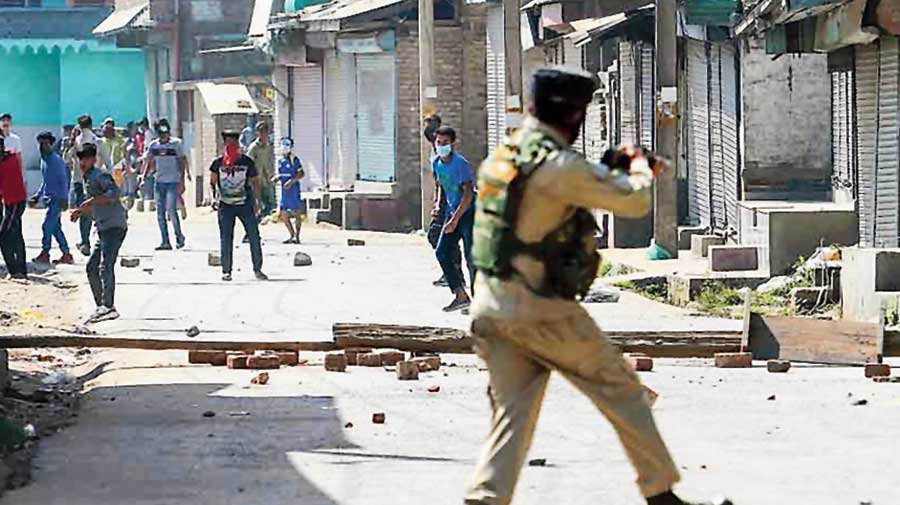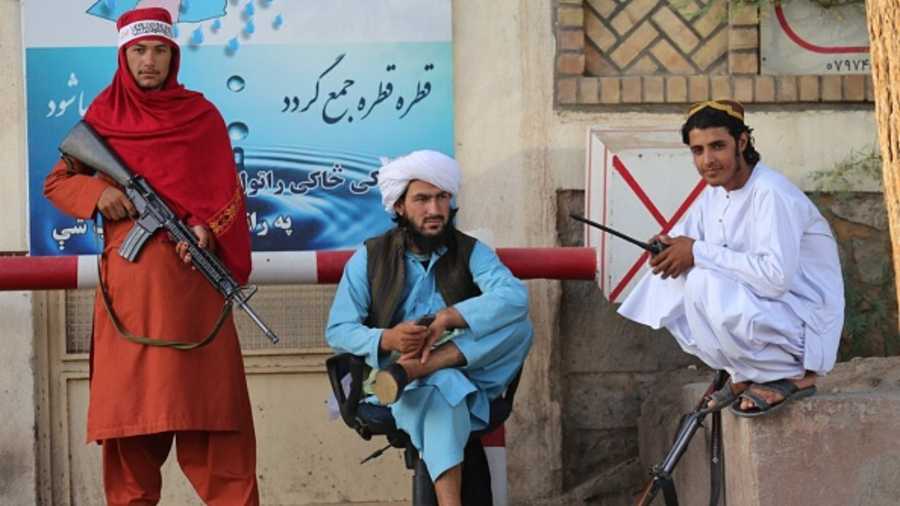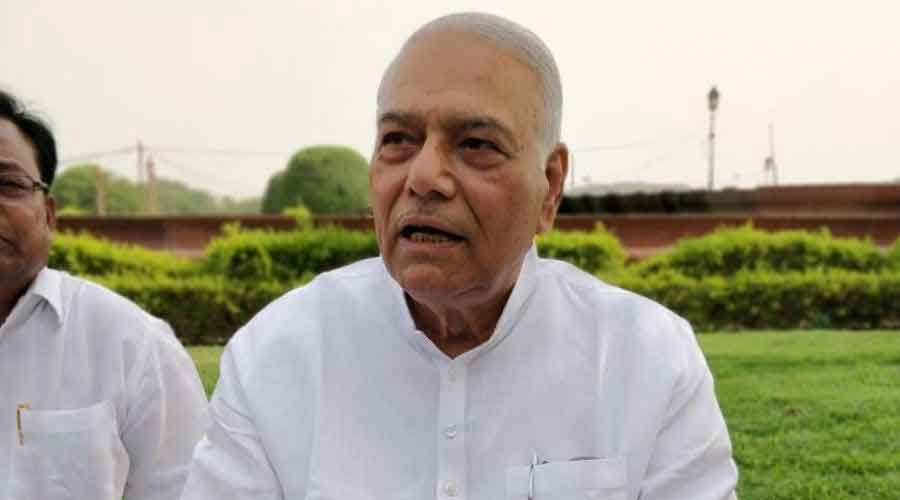The resurgence of the Taliban has serious security implications for India, especially in Jammu and Kashmir, and there is apprehension that Afghanistan will soon become a terror hub to be used by anti-India elements, sources in the security establishment have said.
Government sources said India’s internal and external secret agencies had been keeping a close eye on the growing influence of the Taliban, which have links with Pakistan-based terror outfits Lashkar-e-Toiba, Jaish-e-Mohammed and the Haqqani network, a Taliban faction.
“The resurgence of the Taliban has become a serious security concern for India and the threat cannot be downplayed. There is genuine fear that we could now witness the resurgence of cross-border terrorism in Kashmir in a big way,” an Intelligence Bureau official told The Telegraph.
India, he said, is already facing two hostile neighbours — Pakistan and China — on its western and northern borders. “We are already dealing with plenty of problems on our borders and the Taliban could act as a force multiplier,” he said.
A former official of RAW, India’s external spy agency, said it was a precarious situation and nobody knew what would happen in Afghanistan after the withdrawal of the US forces.
“But one thing is undeniable that the resurgence of the Taliban will make it easier for the Islamic State-Khorasan (IS-K) and other terror groups from Pakistan to establish sanctuaries on Afghan soil,” he said.
A retired IB director said the Pakistan-China axis would use the Taliban against India.
“India is now facing a big challenge to safeguard its interests in the wake of the Taliban resurgence,” he said.
The Haqqani group continues to be the best armed and trained Taliban faction. In the past, it had carried out attacks against Indian assets, including the embassy in Kabul.
“The nexus between Pakistan’s ISI and the Haqqani group is very strong and this is alarming for India and poses a real security risk,” the former IB director said.
There is fear that the ISI can use the Haqqani network to train terror recruits in Afghanistan and send them to India to conduct militant attacks. In the past, Pakistan had used Afghanistan soil to train jihadis for terrorism in Kashmir, he said.
The IS-K is the Afghanistan and Pakistan arm of the Islamic State and was founded in 2015 in Nangarhar province in the eastern part of Afghanistan bordering Pakistan.
It is the most violent of all the jihadist militant groups in Afghanistan and is not affiliated to the Taliban leaders who have seized control of Afghanistan’s government.
“Among its ranks, the group has both Afghan Talibanis and Pakistani militants. Many of the disgruntled Taliban fighters had joined the group as they considered their own organisation too moderate,” said a security official attached to the Union home ministry.
The IS-K has taken responsibility for the terror attack at Kabul airport on August 26 that killed at least 170 civilians, including 13 US troops. In March last year, the terror group had attacked a gurdwara in Kabul that killed 25 people.
Sources in the security establishment said the IS-K’s core group had nearly 5,000 militants but smaller cells were active across Afghanistan.
Qaida message
Al Qaida has congratulated the Taliban for the Afghanistan takeover and called for the “liberation” of Kashmir.
“…Liberate the Levant, Somalia, Yemen, Kashmir and the rest of the Islamic lands from the clutches of the enemies of Islam…. Grant freedom to Muslim prisoners across the world,” al Qaida prayed in a statement.
Additional reporting by Muzaffar Raina













